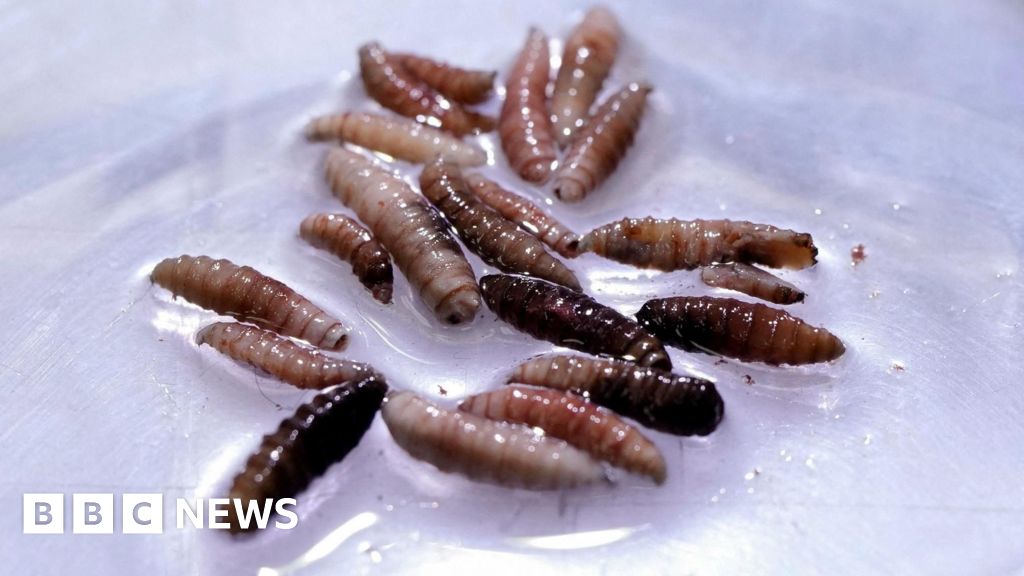NEW YORK — This week, the Advisory Committee on Immunization Practices (ACIP), led by Health Secretary Robert F. Kennedy Jr., is convening to discuss potential changes to vaccination recommendations concerning COVID-19, hepatitis B, and chickenpox. As the meeting unfolds in Atlanta, public health experts anxiously await the expected votes, fearing that the outcomes could raise unwarranted skepticism about vaccines among parents.
The specific questions set for a vote remain unclear, as officials from the Department of Health and Human Services have not provided further details. Critically, there are concerns that a vote may restrict government funding for vaccines for low-income families, which could jeopardize vaccination access for vulnerable children.
Dr. William Schaffner, a well-known vaccines expert, voiced his anxiety, stating, ‘I’m tightening my seat belt’ as the panel prepares for discussions. The ACIP, which traditionally advises the CDC on vaccine usage, has historically had a significant impact on public health policy, with its recommendations widely adopted by practitioners across the country.
Kennedy, who was previously a prominent figure in the anti-vaccine movement, has made waves in the health community since his appointment by firing the entire previous 17-member ACIP and replacing it with a new group that includes various anti-vaccine proponents.
As the ACIP prepares to evaluate key vaccines, these include:
### COVID-19
In previous years, ACIP convened in June to reaffirm recommendations concerning COVID-19 vaccinations. However, this year, under Kennedy's direction, the committee chose to remain silent on COVID-19 shots during its June meeting, even as the CDC indicated that families could still access vaccinations for children through consultation with their doctors. The ongoing conversations surrounding whether these shots will be covered by the Vaccines For Children program could significantly impact children's access to COVID-19 vaccinations, particularly as new vaccine formulations emerge each fall.
### Hepatitis B
Hepatitis B is a serious viral infection that can lead to chronic conditions, particularly in infants. The vaccine for hepatitis B has been routine since its licensing in 1981. However, Kennedy’s committee hinted at revisiting guidance on administering the vaccine to newborns, raising alarms among health officials about potential risks of increasing mother-to-child transmissions of the virus.
### MMRV
The MMRV vaccine protects against measles, mumps, rubella, and varicella (chickenpox). Originally recommended in 1995, revisions to its administration have occurred based on observed side effects involving fevers and rashes in children post-vaccination. Pediatricians advocate for continued adherence to vaccination guidelines, but the current ACIP members’ questioning of the established protocols could incite further uncertainty amongst parents.
With the central theme of this meeting reflecting the ongoing national debate about vaccine safety and efficacy, experts from organizations like the American Academy of Pediatrics are calling for clear, science-based recommendations while expressing concerns that the current ACIP's makeup may lead to efforts that dissolve public trust in vaccines.
The specific questions set for a vote remain unclear, as officials from the Department of Health and Human Services have not provided further details. Critically, there are concerns that a vote may restrict government funding for vaccines for low-income families, which could jeopardize vaccination access for vulnerable children.
Dr. William Schaffner, a well-known vaccines expert, voiced his anxiety, stating, ‘I’m tightening my seat belt’ as the panel prepares for discussions. The ACIP, which traditionally advises the CDC on vaccine usage, has historically had a significant impact on public health policy, with its recommendations widely adopted by practitioners across the country.
Kennedy, who was previously a prominent figure in the anti-vaccine movement, has made waves in the health community since his appointment by firing the entire previous 17-member ACIP and replacing it with a new group that includes various anti-vaccine proponents.
As the ACIP prepares to evaluate key vaccines, these include:
### COVID-19
In previous years, ACIP convened in June to reaffirm recommendations concerning COVID-19 vaccinations. However, this year, under Kennedy's direction, the committee chose to remain silent on COVID-19 shots during its June meeting, even as the CDC indicated that families could still access vaccinations for children through consultation with their doctors. The ongoing conversations surrounding whether these shots will be covered by the Vaccines For Children program could significantly impact children's access to COVID-19 vaccinations, particularly as new vaccine formulations emerge each fall.
### Hepatitis B
Hepatitis B is a serious viral infection that can lead to chronic conditions, particularly in infants. The vaccine for hepatitis B has been routine since its licensing in 1981. However, Kennedy’s committee hinted at revisiting guidance on administering the vaccine to newborns, raising alarms among health officials about potential risks of increasing mother-to-child transmissions of the virus.
### MMRV
The MMRV vaccine protects against measles, mumps, rubella, and varicella (chickenpox). Originally recommended in 1995, revisions to its administration have occurred based on observed side effects involving fevers and rashes in children post-vaccination. Pediatricians advocate for continued adherence to vaccination guidelines, but the current ACIP members’ questioning of the established protocols could incite further uncertainty amongst parents.
With the central theme of this meeting reflecting the ongoing national debate about vaccine safety and efficacy, experts from organizations like the American Academy of Pediatrics are calling for clear, science-based recommendations while expressing concerns that the current ACIP's makeup may lead to efforts that dissolve public trust in vaccines.


















